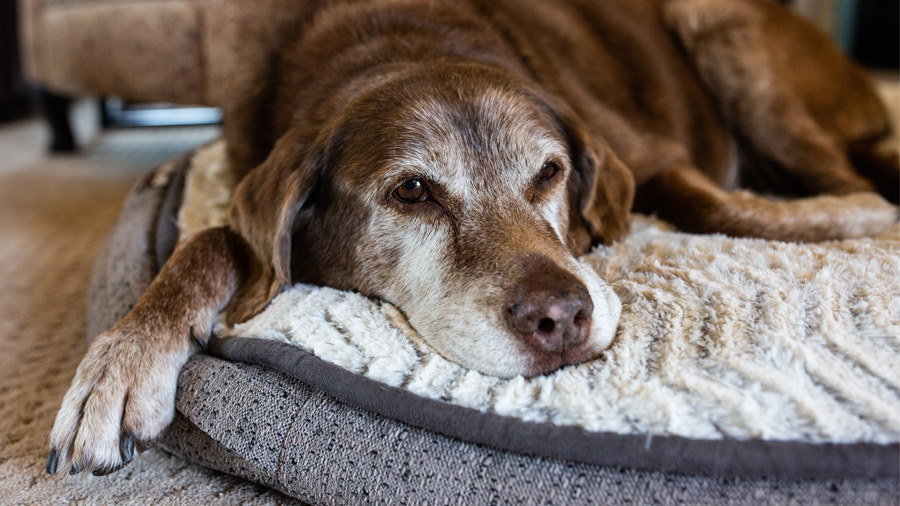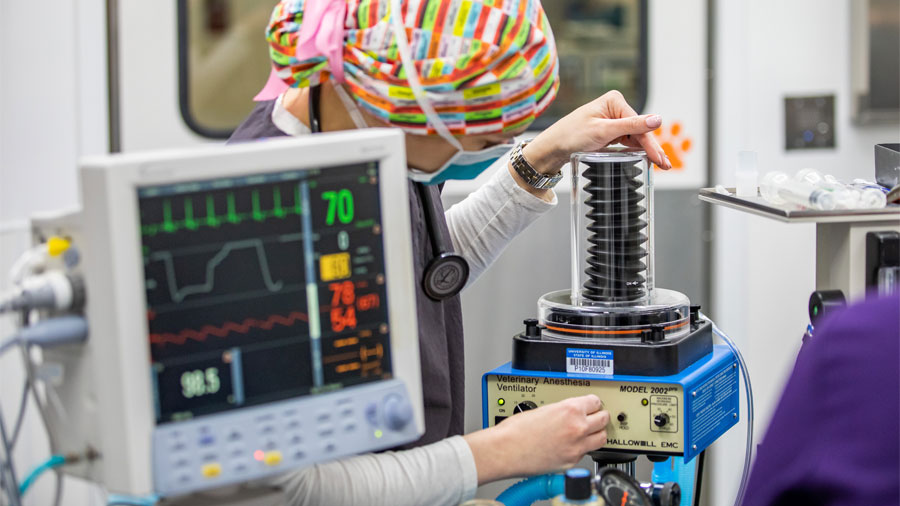Every February, the veterinary community celebrates National Pet Dental Health Month. It’s a chance to call attention to the link between your pet’s oral health and its overall health.
Did you know that gum disease is the most common health problem in cats and dogs and it is completely preventable?
Dr. Suma Rao, a veterinarian working in the dentistry service at the University of Illinois Veterinary Teaching Hospital in Urbana, offers her insights.
Benefits to Routine Dental Care
Keeping bad breath at bay, although a plus, is not the most important reason for attending to your pet’s dental health. In pets as in people, the mouth can harbor harmful bacteria that can affect other parts of the body.
“Gingivitis can lead to systemic inflammation that can affect other organs in the body,” says Dr. Rao.
She also notes that problems in the mouth can be painful for your pet.
“Swollen and red gums indicate inflammation of the gums, also known as gingivitis. Calculus, the hardened form of plaque, shows that there is inflammation as well,” she says. “With proper preventive care, your pet’s mouth won’t hurt and your pet will be happier.”
Brush Your Pet’s Teeth Daily
The best way to help prevent dental disease of any type in dogs and cats is for their teeth to be brushed every day.
“The consensus is that brushing teeth every day is the most beneficial,” says Dr. Rao. “Brushing every other day can help too. Anything less than every other day is not going to prevent buildup of plaque.”
So how do you go about daily tooth brushing for your pet? Since it can be hard to get pets used to brushing, Dr. Rao recommends that you start when they are young.
“When you get a new puppy, it is best to start brushing their teeth early, so they get accustomed to it,” she says. “First, let the puppy lick the toothpaste from your fingers. Then, introduce a finger brush with paste. Finally, graduate to a small children’s toothbrush.”
This strategy could also be used with young kittens.
It’s very important to use toothpaste marketed specifically for animals. Toothpaste not formulated for animals can contain chemicals that are harmful to pets, such as xylitol or fluoride.
Consult your local veterinarian to learn about recommended dental products for pets. The Veterinary Oral Health Council maintains a list of approved products for pets.
Practices to Support Tooth Brushing
So what if your dog or cat doesn’t cooperate with your daily toothbrushing plan? Dr. Rao offers other dental health options that can slow down the buildup of bacteria in your pet’s mouth. “Besides brushing teeth, owners can use pet dental care products such as oral rinse, water additive, dental diet, teeth sealant, and dental chews to help keep the mouth healthy,” she says. She recommends using a combination of these dental care products designed for animal use.
For dogs, feeding a diet of hard kibble has been shown to help control calculus buildup. “The kibble is abrasive, so it removes plaque on the teeth before it hardens into calculus,” says Dr. Rao. “Prescription dental diets, such as Purina DH and Hill’s t/d, have been proven to prevent plaque buildup.”
However, if you have a pet that does not chew its food, then that mechanical action of the food against the teeth won’t take place, so it won’t be effective in reducing plaque.
Don’t Skip the Professional Dental Exam
Even with the best daily dental routines, your pet will periodically need a dental exam and cleaning by your local veterinarian. During this process, your pet will be put under general anesthesia so the doctor can perform a thorough oral exam to check for problems and remove any calculus buildup that is present.
“When you bring your pet to the dentistry service at the Veterinary Teaching Hospital, we first perform bloodwork to determine if the pet is healthy enough to undergo general anesthesia,” explains Dr. Rao.
“Then, we place a catheter to give intravenous fluids during the procedure. We perform full-mouth dental radiographs, just like your own dentist does. We carefully check for pockets of infection in the gums, fractured teeth, tumors, and loose teeth.
“If extractions are needed, we give your pet a local anesthetic block to prevent pain before performing the extraction and send your pet home with pain medicine.”
Your pet’s dental health is just as important as other preventive health strategies to help your pet live a long healthy life!
By Reilee Juhl




